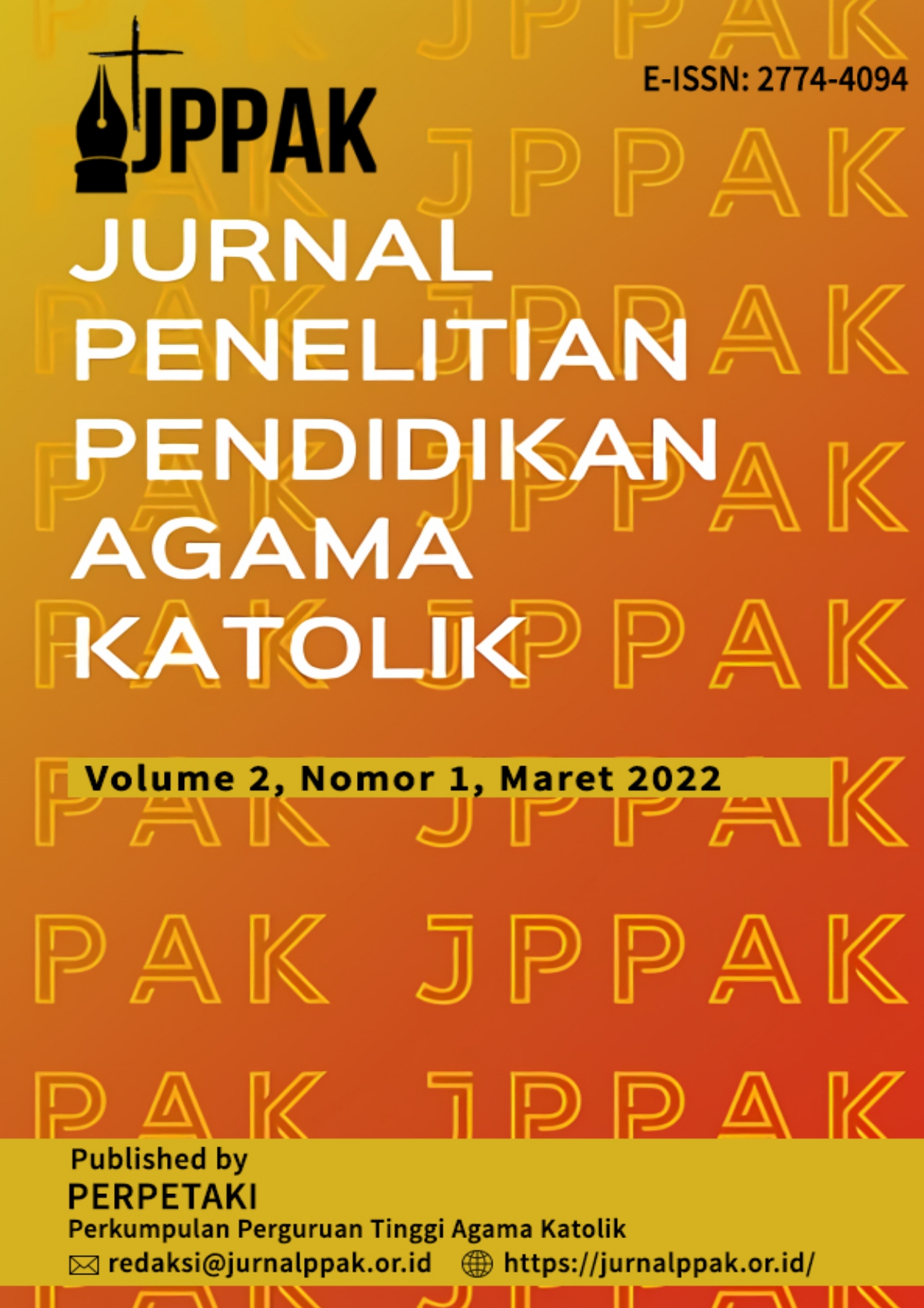Pemahaman Guru Pendidikan Agama Katolik (PAK) terhadap Ajaran Moral pada Jenjang SMA di Pontianak
DOI:
https://doi.org/10.52110/jppak.v2i1.36Keywords:
moral; morality; ethics; critical; understanding; normative; religionAbstract
Various scholars argue that there is a close relationship between education with moral teachings and education with religion on the other hand. People in previous decades believed that the essence of all education lies in moral and religious strength. Morality is closely related to human behavior from a normative perspective. For example, what should be done is different from what is done. Apart from we ourselves, morality is also concerned with actions that affect the interests and happiness of others. However, these moral claims must be addressed and accepted critically. There must be a fundamental and critical understanding of why someone should act according to specific provisions. In this case, an understanding of the concept of morality is needed. The research aims to determine the understanding of Catholic religious teachers at the high school level regarding the relationship between moral and religious teachings. Aspects that want to be known include how the basic and critical understanding of religious teachers – in the form of a fundamental orientation – in accounting for moral views rationally. The method used in this research is qualitative. In addition to interviews and questionnaires, the Focus Group Discussion technique was also used in this study. This research shows that the teacher’s understanding of moral and religious teachings is dynamic, whole, and holistic. The research’s findings show that most Catholic teachers view moral teachings as the same as religious teachings, both material and form.
Downloads
##submission.downloads##
Submitted
Accepted
Published
How to Cite
Issue
Section
License
Copyright (c) 2022 Gustaf Hariyanto, Andreas Muhrotien, Mayong Andreas Acin

This work is licensed under a Creative Commons Attribution-ShareAlike 4.0 International License.
Copyright Notice and Permissions
Jurnal Penelitian Pendidikan Agama Katolik offers immediate open access to all its content on the principle to make researches freely available to the public, especially to the scholars, to support greater global exchanges of knowledge. This journal encourages all scholarly authors to allow their research openly available, free access and without time restrictions.
All articles published Open Access will be immediately and permanently free for everyone to read and download. Under the CC BY-SA 4.0 license, authors retain ownership of the copyright for their article, however authors grant others permission to use the content of publications in Jurnal Penelitian Pendidikan Agama Katolik (JPPAK) in whole or in part provided that the original work is properly cited. Users (redistributors) of Jurnal Penelitian Pendidikan Agama Katolik (JPPAK) are required to cite the original source by including at least: the full title of the article, the author's or authors' full name(s), JPPAK as the initial source of publication, year of publication and volume number using a propriate citing method.
Copyright encompasses exclusive rights to reproduce and deliver the article in all form and media, including reprints, photographs, microfilms and any other similar reproductions, as well as translations. The reproduction of any part of this journal, its storage in databases and its transmission by any form or media, such as electronic, electrostatic and mechanical copies, photocopies, recordings, magnetic media is prohibited without consent of Jurnal Penelitian Pendidikan Agama Katolik (JPPAK).
Jurnal Penelitian Pendidikan Agama Katolik (JPPAK) is licensed under a Creative Commons Attribution Share-Alike 4.0 International. (CC BY-SA 4.0)
Authors who publish with Jurnal Penelitian Pendidikan Agama Katolik (JPPAK) agree to the following terms:
- Authors retain copyright and grant the journal right of first publication with the work simultaneously licensed under a Creative Commons Attribution Share-Alike 4.0 International (CC BY-SA 4.0) license that allows others to share the work with an acknowledgement of the work's authorship and initial publication in this journal.
- Authors are able to enter into separate, additional contractual arrangements for the non-exclusive distribution of the journal's published version of the work (e.g., post it to an institutional repository or publish it in a book), with an acknowledgement of its initial publication in this journal.
- Authors are permitted and encouraged to post their work online (e.g., in institutional repositories or on their website) after the publication on JPPAK, as long as it not published on other OJS for it will be treated as plagiarism by plagiarism checker apps. It can lead to productive exchanges, as well as earlier and greater citation of published work (See The Effect of Open Access).












